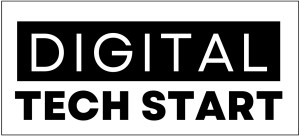Trademarking a tech startup in Nigeria comes with a lot of limitations and it is more than just a fulfillment of legalities. In an era where innovation has come to stay, setting apart your brain-child is critical.
One critical tool for ensuring protection is trademarking. For startups and businesses in general, trademarks play a crucial role in establishing product and service differentiation from competitors.
However, navigating the trademark registration process in Nigeria has its challenges. In this blog post, we will share these limitations to trademarking a tech startup in Nigeria. Then, offer insights to help your tech startup safeguard its brand effectively.
Trademarking in Nigeria
Let’s briefly understand what trademarking involves. A trademark is a recognizable sign or design. As an expression, it identifies products or services of a particular source from those of others.
In Nigeria, the Trademarks, Patents, and Designs Registry, under the Commercial Law Department of the Federal Ministry of Industry, Trade, and Investment, manages trademark registrations.
Trademarks include:
- Names
- Slogans and signatures
- Symbols and logos
- Packaging and shape of goods
- Combination of colours etc.
To qualify for registration, and then legal protection, a trademark must meet statutory criteria. One such criterion includes falling within permissible categories of registrable trademarks.
In short, this forms part of the limitations of trademarking your tech start-up in Nigeria discussed in this article. Another such criterion is that your trademark must be distinctive and able to set apart your tech product and services from those of others.
When you register your trademark, your startup obtains an exclusive right to use the trademark when providing goods and services. Most start-ups begin operations in Nigeria without a trademark which is risky. For instance, your new digital business can earn an infringement suit for flaunting a confusing identity similar to another registered one.
Also Read: How to Trademark Your Tech Company in Nigeria
What Qualifies as a Startup in Nigeria
The Nigerian Startup Act 2022 defines a start-up as a company in existence for not more than 10 years, with its objectives being the creation, innovation, production, development, or adoption of a unique digital technology, innovative product, service, or process.
The National Council for Digital Innovation and Entrepreneurship (the “Council”) sees to it that digital innovative businesses meet the labeling requirements. The requirements are set out by the Nigeria Startup Act 2022.
All tech companies must be registered under the National Information Technology Agency( NITDA).
As for trademarks, those are usually registered through the Trademarks, Patents and Designs Registry, Commercial Law Department of the Federal Ministry of Industry, Trade and Investment in Nigeria.
Limitations of Trademarking a Tech Startup in Nigeria
As a tech start-up grows, it becomes increasingly important to safeguard its identity through trademarking. Competitors may exploit the goodwill a business has garnered over time by trying to mimic its properties.
These among many reasons make it highly important to protect your tech start-up. However, the road to acquiring a trademark for your tech start-up can be bumpy. We have highlighted the limitations below. As they say, to be forewarned is to be fore-armed. This information will help you prepare and overcome the hurdles.
Bureaucratic Hurdles
One of the first roadblocks tech startups encounter is the bureaucratic nature of the trademark registration process in Nigeria. Despite efforts to digitize operations, many steps remain mired in paperwork and procedural delays. There is a maze of forms to navigate from application to final approval. This often requires the assistance of legal professionals. The complexity can be daunting for new enterprises already stretched thin on resources.
Lengthy Processing Times
Time is of the essence in the fast-paced tech industry. The first-mover advantage is especially important in the tech ecosystem. However, the trademark registration process in Nigeria is notoriously slow, with approvals taking anywhere from 6 to 18 months, or sometimes even longer. This delay can hinder a startup’s ability to protect its brand in a timely fashion, leaving it vulnerable to infringement.
Ambiguity in Classifying Tech Products and Services
The classification system used for trademark registration, based on the Nice Classification, can be ambiguous. It is worse when it comes to tech products and services. The rapid evolution of technology means new products and services may not fit neatly into existing categories. Such ambiguity can lead to confusion and disputes over the appropriate class for registration. The outcome? More delays or rejections.
High Costs
The cost of trademark registration in Nigeria may not be considered exorbitant. Yet, it remains a barrier for cash-strapped startups. The fees cover various stages of the process, including application, publication, and issuance of the certificate.
When legal fees for navigating the complex process are factored in, the total cost can become huge. This typically involves enlisting the services of an IP lawyer to handle the registration process. The lawyer also conducts trademark searches. The purpose is to ensure his client’s trademark has no identical registered trademark elsewhere.
Also, since trademark rights are territorial and are only protected in the territories in which they are registered, it has to be registered in countries where your startup plans to operate. For startups at the seed or bootstrapping stage, these expenses may be prohibitive.
Enforcement Challenges
Even with a registered trademark, enforcement in Nigeria can be challenging. It is a common saying that Nigerians are a litigious people. The data validates it. What is worse than having a huge backlog of civil and criminal cases is the sluggishness of the country’s legal system. This often translates to the fact that intellectual property rights enforcement is not a priority. This situation can lead to prolonged legal battles to protect a trademark from infringement.
Digital and Global Nature of Tech Startups
Tech startups often operate in a digital realm that transcends national borders. This can complicate the protection of trademarks. While a startup can secure a trademark in Nigeria, protecting that trademark globally requires additional registrations under the Madrid Protocol or in individual countries. This requirement can be overwhelming for startups planning to operate or expand internationally.
Limited Public Awareness
A broader societal limitation is the general lack of awareness about intellectual property rights and the importance of trademarks. This lack of awareness is an additional limitation to trademarking in Nigeria. Little attention is paid to intellectual theft. There are cases of deliberate and unintentional infringements caused by ignorance. Other businesses or individuals use similar brand elements without realizing they are violating trademark rights. Educating the public and other businesses about the significance of trademarks is an ongoing challenge.
Also Read: Requirements for Trademarking Your Tech Startup in Nigeria
Navigating the Limitations
The limitations tech start-ups face in Nigeria to trademark their innovation are many. Yet, there are strategies they can employ to navigate the trademarking process more effectively:
Early Application: Begin the trademark registration process as early as possible to mitigate delays.
Professional Assistance: Engage with intellectual property lawyers who specialize in trademark law to navigate the process efficiently.
Clear Classification: Work with legal experts to clearly define and classify your tech products or services This will help your business avoid ambiguity.
Budget Planning: Allocate funds for trademark registration early in the business. Plan all the processes to cover all associated costs.
Global Strategy: For startups looking beyond Nigeria, consider international trademark protection strategies from the outset.
Public Education: The misconceptions and ignorance surrounding trademarking in the country need to be fought. Join hands in initiatives to raise public awareness about the importance of trademarks to reduce unintentional infringements.
Conclusion
Trademark registration is critical for tech startups for the sake of legal protection. Aside from that, exclusive rights and expansion opportunities open up for tech with registered trademarks.
But the road to trademarking tech startups in Nigeria is fraught with challenges. Understanding these limitations is the first step toward effective brand protection for your tech startups.
We recommend that you adopt strategic measures by starting the process early. Conduct a thorough search and seek legal support when considering trademarking. These steps will ensure your innovative products and services are safeguarded against infringement.









